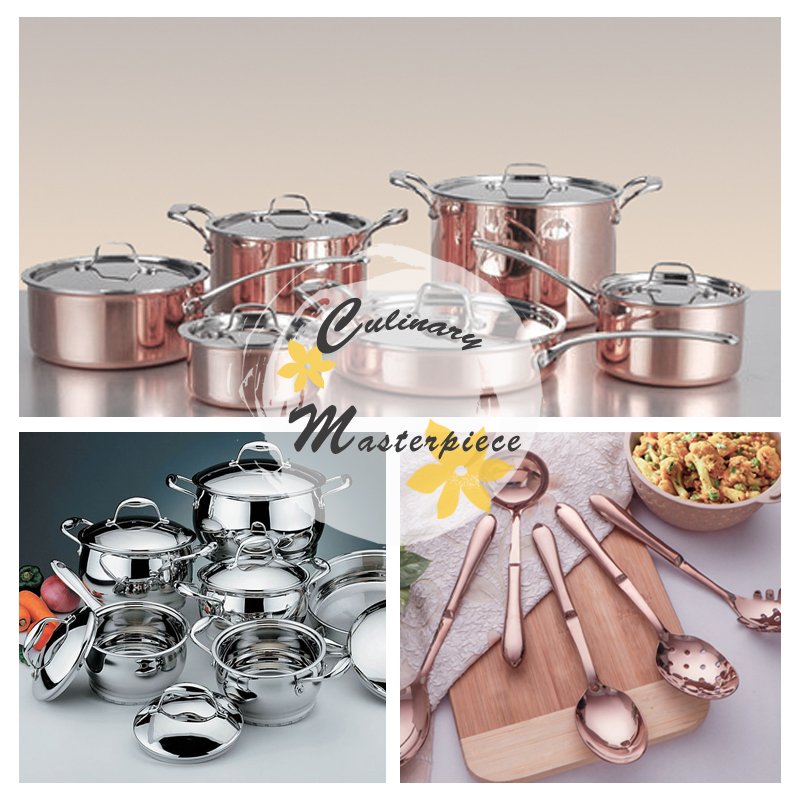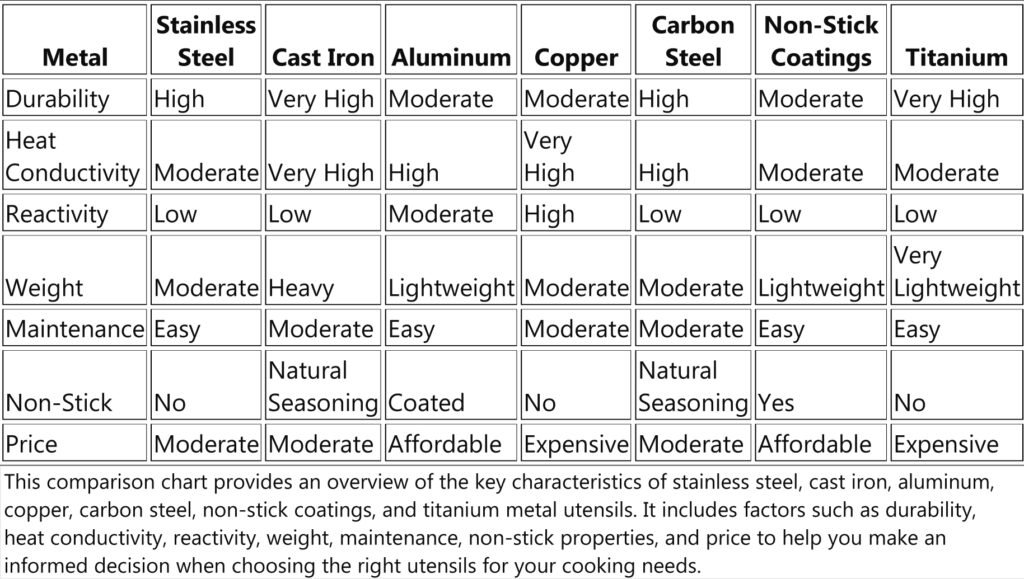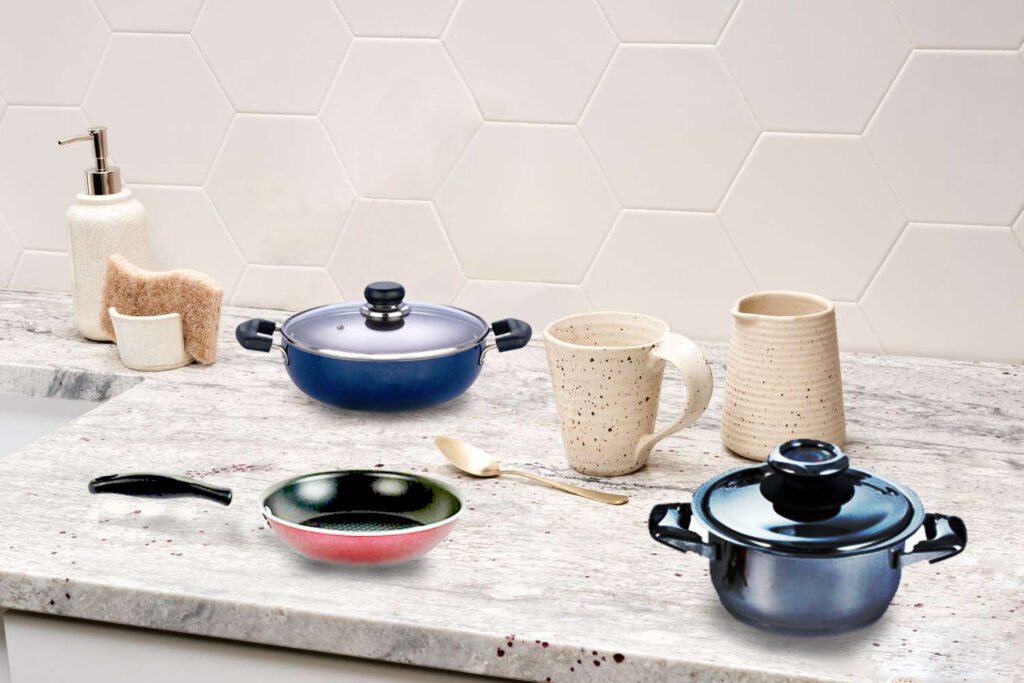7 Key Metals for Cooking Utensils: Exploring the Best Options for Your Kitchen

When it comes to cooking utensils, the material they’re made from plays a crucial role in their performance, durability, and even the taste of your food. From stainless steel to copper, each metal offers unique benefits and considerations for home cooks and professional chefs alike. In this comprehensive guide, we’ll explore seven of the best metals for cooking utensils and search in depth why they are preferred choices for various culinary tasks.
- Stainless Steel:
Renowned for its exceptional heat retention and durability, cast iron is a favorite among seasoned chefs and home cooks alike. Cast iron utensils, such as skillets, griddles, and Dutch ovens, distribute heat evenly and maintain consistent temperatures, making them perfect for searing, frying, and baking. Additionally, cooking with cast iron can enhance the flavor and nutritional value of your food by imparting trace amounts of iron into your meals. With proper care and seasoning, cast iron utensils develop a natural non-stick surface that improves over time, making them an excellent investment for generations to come.
- Aluminum:
Aluminum is prized for its excellent heat conductivity, lightweight construction, and affordability. Utensils made from aluminum heat up quickly and evenly, allowing for efficient cooking and energy savings. However, bare aluminum utensils can react with acidic or alkaline foods, leading to discoloration and off-flavors. To mitigate this, many aluminum cookware pieces are coated with non-stick or anodized finishes, which provide a protective barrier and make them suitable for a wide range of cooking tasks. Aluminum utensils are easy to clean, but they may not be as durable as other metals and can warp under high heat or impact.
- Copper:
Copper is prized for its superior heat conductivity and exquisite appearance, making it a staple in professional kitchens around the world. Copper cooking utensils heat up quickly and distribute heat evenly, allowing for precise temperature control and responsive cooking. From saucepans to mixing bowls, copper utensils excel at delicate tasks such as caramelizing sugar, whipping egg whites, and reducing sauces. However, copper is a reactive metal that can interact with certain foods, particularly acidic ingredients like tomatoes and citrus fruits. To prevent this, most copper utensils are lined with a layer of stainless steel or tin, which preserves the integrity of the food and the cookware.
- Carbon Steel:
Carbon steel is a durable and versatile metal that combines the best qualities of cast iron and stainless steel. Utensils made from carbon steel are lightweight, responsive, and ideal for high-heat cooking methods such as searing, stir-frying, and grilling. Similar to cast iron, carbon steel utensils require seasoning to develop a natural non-stick patina and prevent rusting. With proper care, carbon steel utensils become increasingly non-stick over time, making them a favorite among professional chefs and home cooks seeking restaurant-quality results.
- Non-Stick Coatings:
Non-stick coatings, such as Teflon (polytetrafluoroethylene) and ceramic, are applied to various metal surfaces to create utensils that prevent food from sticking and facilitate easy cleanup. Non-stick utensils are ideal for cooking delicate foods like eggs, pancakes, and fish, as well as for reducing the need for excessive oil or fat. However, non-stick coatings can deteriorate over time with regular use and may release harmful chemicals if overheated. It’s essential to follow the manufacturer’s instructions for proper use and care to prolong the lifespan of non-stick utensils and ensure food safety.
- Titanium:
Titanium is an ultra-lightweight yet incredibly durable metal that is gaining popularity in the culinary world for its exceptional strength and resistance to corrosion. Cooking utensils made from titanium are virtually indestructible, making them ideal for outdoor cooking, camping, and backpacking adventures. While titanium utensils may not conduct heat as efficiently as other metals, they are prized for their lightweight design, longevity, and versatility in various cooking environments.

In conclusion, choosing the right metal for your cooking utensils depends on your specific culinary needs, preferences, and budget. Whether you prioritize durability, heat conductivity, or non-stick properties, there is a wide range of metals to choose from, each offering unique benefits and considerations. By understanding the characteristics of different metals and how they impact cooking performance, you can make informed decisions that enhance your culinary experience and elevate your dishes to new heights.


